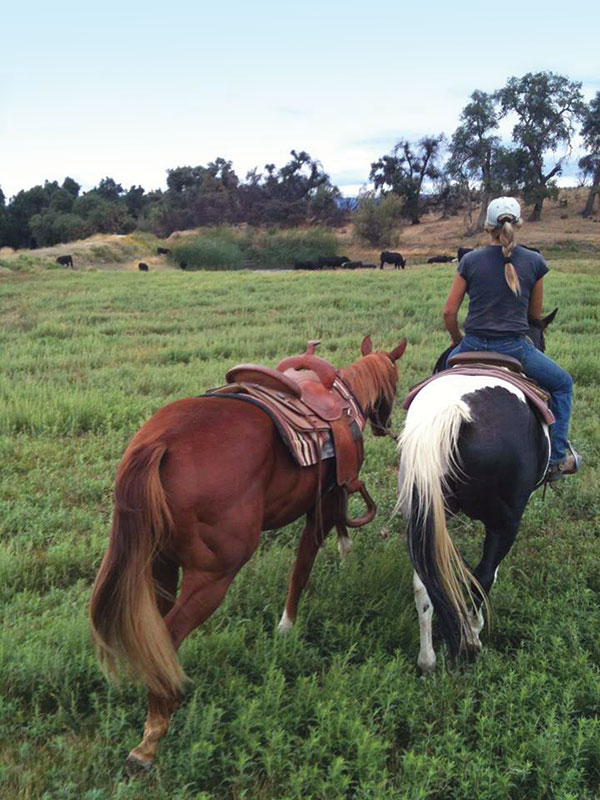By Sheryl Lynde | Horsetrader columnist
I’ve owned Lil’ Joe since he was four years old. Now 25, he was the catalyst for my seeking help that ultimately led to a career change
During the first years of ownership, I allowed some behaviors to go uncorrected. I wasn’t paying attention to the smaller details. He began to balk at my requests in certain circumstances, which developed into more emphatic refusals. Later, his refusals developed into crow-hopping, and the crow-hopping evolved into a buck.
Then one day I hit the ground. Once he had unseated me, every bucking episode from that day forward continued until I came off. He had my attention now.
I kept trying to ride through the behavior, but no improvement was being made. I was taking the issue with me whenever and wherever I rode. It was time to get help.
My choice at the time was John and Josh Lyons. I enrolled in their program and was totally committed—all in. The first session was three weeks of very specific ground work, which exposed the reason behind Lil’ Joe’s issue. He never bucked again. It taught me the importance of correct ground work and how to take that training to the saddle.

That was 15 years ago. Since then, I have developed my own program and have been starting colts and working with troubled horses. My story is not a new one, and it is very familiar to those who have come to me for help over the years. Stay with me, and I will get to my point as to “why we train.”
Lil’ Joe’s training has continued to this day. He has become an integral part of my career by performing demos, helping me start colts and giving confidence to fearful riders. I say this because I want to emphasize this point: Training never stops. By addressing and correcting the little things that turn up, you avoid having to ride the buck, the bolt, and the rear. Training takes time and dedication. Studies show that only five percent of people who make a resolution to get help actually follow through and continue, regardless of having made a substantial financial investment. Change requires that we live outside our comfort zone, experience feelings of awkwardness and frustration as we work at converting old habits into new skills. Even though our old habits no longer serve us, they are comfortable and we know them well. Unless there is a situation that is threatening our safety, seeking help to become a better horseman is not always a high priority.
But I offer you another reason: We owe it to our horse’s future.
As legendary equestrian Tom Roberts was quoted, “If you are fond of a horse and wish to do him a real favor, train him well. Teach him good manners and good habits, both on the ground and under saddle. You never need to worry about the future of such a horse for any reason you may need to part with him.”
I have been fortunate to own Lil’ Joe for 21 years, anyone would be pleased to own him. He has helped and inspired many riders. I am 63 years old. I currently own a 3- and 4-year old that I am starting and bringing along. Starting colts takes an extraordinary amount of time and consistent effort in order to help them develop into well-broke citizens. Typically, when a youngster is brought to me to get started as a 2-year old, I need 90 days to get the youngster comfortable with walking, trotting and cantering under saddle. At this point they will have just a basic understanding of seat and leg pressure as well as limited exposure to environments outside the arena. If the horse is older, this process generally takes longer. This is what you can expect in 90 days. But ahead of them lies years of training. They need to be hauled to different locations, helped through fearful situations, taught speed control, correct lead departures, how to stop and back up with energy, cross water, climb hills. The list goes on.
At my age, I have a new level of commitment to each horse I own. In 21 years from now, I will be 84 years young. Although I see myself as just hitting my stride and continuing to seek help from mentors to reach new goals, life may take another turn that I hadn’t counted on. I may face the prospect of having to rehome these two youngsters. In order to secure their future, I owe it to them to teach them manners, both on the ground and in the saddle. I will build their confidence and instill good habits just as I have for the past 21 years with Lil’ Joe.
–Sheryl
Leave a Comment
All fields must be filled in to leave a message.